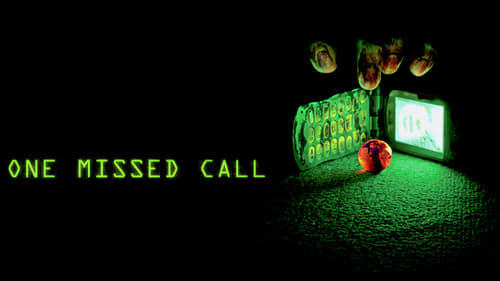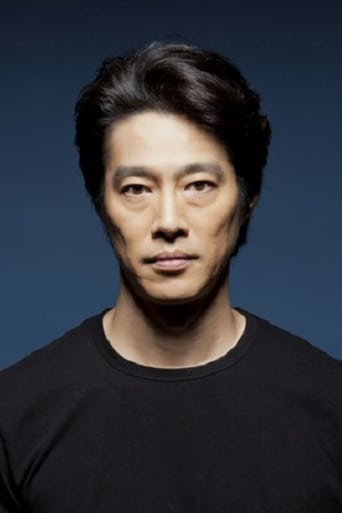Matialth
Good concept, poorly executed.
AshUnow
This is a small, humorous movie in some ways, but it has a huge heart. What a nice experience.
Zlatica
One of the worst ways to make a cult movie is to set out to make a cult movie.
Philippa
All of these films share one commonality, that being a kind of emotional center that humanizes a cast of monsters.
eva_luke2003
I sat down tonight expecting a horror film, but the only thing that scared me was when the music came one a blow a fair amount of air out of my sub woofer and the air blow across my feet and i jumped hahaha.but other then that I found this movie to boring and pointless.but to be fair the background music and the effects(in some spots not all) are great.like if you take away the fact its meant to be a horror film, you have a decent movie.so if you are like me and have a taste for Japanese horror films, this movie is in no way in any relation to Ju-On, Ringu and dark water. but please if you are thinking about watching this movie, I recommend renting it first, or asking a friend if they have it.
Damester17
This movie made me grab some cell phones and delete my number. Although I do not believe in spirits haunting phones i do believe in spirits such as death and demons. I also believe in bad luck streaks jumping from people to people. That said lets move on to the actually movie.Plot: I never heard of a plot so twisted (literally the twist were at every other scene) I was not sure what was happening until it had happened and I paused and took a few minutes to collect my thoughts on what just transpired. My line of thought was simple at first. People get a call hearing their death they die soon after and candy pops out their mouth they make one more call to someone in their contact list that person is next. Then the questions started coming in. This is when i got confused. Why did candy pop out their mouth? Why a cell phone? Why do they have to die? So on and so forth. The answers somewhat make sense. . . and i really emphasis the somewhat. But they do make sense. Execution: I do not believe it could have been done better. That pretty much all i have to say about the execution. It was a decent length the subs were not a blinding color and a blur across the bottom of the screen. The acting was decent even if their dialogue was predictable at times although the story itself was not.Climax: A beautiful flash of humanity and our fear of death and how we overcome it to live or so i thought until the final 2 twist come in and she stabs her companion as he tries to save her. Closing: It was almost perfect but i was not sure if the male star would be finishing his piece of candy. I hate open endings that leave you wondering was it solved or is he still gonna die.
johnnyboyz
If John Carpenter's 1978 film Halloween was a metaphorical and unsubtle morality tale on celibacy, does this make Takashi Miike's 2003 film One Missed Call a metaphorical and unsubtle tale on popularity? If you had sex in Halloween you were sliced and diced; if you own a mobile phone in this ever growing post-modern world of gadgets and modernity as well as being really popular, in One Missed Call you're arguably in even bigger trouble. But then again even I'm not sure if being stalked by Michael Myers is as scary or indeed scarier than being hunted by a supernatural ghost-like being. There is one thing for sure though, One Missed Call takes its idea and its feint ideas on the ever increasing demand for popularity and somewhat makes a hash of it.I suppose there is no surprise that the Japanese would produce a film such as this one. The general feel I think is that the Japanese are consistently producing the best horror films that the world is currently seeing and even when it's not Japan such as 2003's The Eye, it is still that Far Easterly Asia influence that makes them better than American or indeed European films in the genre. But One Missed Call is just one missed opportunity. With its premise revolving around a slice of technology that spawns greater fears (video tape in The Ring/laser eye technology in The Eye), One Missed Call feels a little dated right from the beginning. Usually the film will rely on daft logic from its characters and implausible situations to get across the bulk of its scares.The idea behind the film reads something along the lines of a mysterious caller trying to contact various people. When these people fail to answer their phones they have a missed call and these voice messages are their grizzly fates. It sounds interesting and like a compelling detective idea but the film dumbs down its premise by presenting the women within the film as weak; one-dimensional; squealing; screaming; inferior people who all share the common characterisations of being abused and the victims in general. Compare this to the male characters who have sad back-stories; are brave, strong and toward the end closely resemble a mythical knight in shining armour as the final acts plays out in a hospital. The men in the film are also authority figures with the few incidences of police presence all being of the male variety.But until these gender issues have arrived, the characters (usually the women) are given really embarrassing actions to carry out. Yumi (Shibasaki) is the protagonist of the film and the one who must find out what's going on before she herself comes to harm. In The Ring and The Eye, similar female heroines took on supernatural missions in order to save themselves and future people. Here, Yumi can only squeal, cry and put her hands over her eyes when faced with danger as the false-hero Hiroshi (Tsutsumi) comes to save her. Hiroshi is also given a prior tragedy; his sister succumbed to the missed call curse and he's in on figuring it all out purely out of spite. For him it is a revenge mission and we feel more for him because of this, thus taking away the focus and emphasis from Yumi.The final showdown in hospital makes for some interesting reading. Watch it and ask yourself "Who actually does what?" Yumi can only cry, stare and crawl around when faced with the film's antagonist and yet there is more at stake for her as it's her life on the line – Hiroshi is there purely for payback but it is him with the weapon and it is he who must fight the monster. Even getting to the hospital is an ordeal. Yumi figures out one thing or another and goes there all alone, at night, poking around. I'm all for scares and thrills, that's why we actively watch horror films but when the motivation for the scares come at such a disappointing and dumbed down level, it is then difficult to 'feel' for the people in the film as it was their own stupidity that got them there in the first place.So this really just acts as a set up to get the male saviour of the film to finish the story off. Getting to the final act is equally as silly. When someone's possession phenomenon is revealed earlier on, everyone's first reaction is to bung her on a TV show and have her exorcised live. This could be a statement on how Japan these days make a media circus out of anything but I'm not in touch enough with the culture to know this for sure. Needless to say that by the time the ghost appears, the entire studio has run away and left the female victim by herself – where were the security guards that were so desperate not to let Hiroshi and Yumi into the studio? Why are there no cautionary backups? Why does the girl just stay there and let it 'get' her? Because she's a female and it acts as a 'scary' scene, I suppose.One Missed Call plods along with its meek ideation about how phones and technology and popularity are maybe dangerous, but it never makes any serious stand. The film is a series of ill-motivated, uninteresting scenes that do not scare so much as they frustrate. By the time the showdown with the monster has arrived, you expect Yumi to be fighting for her life with it right in front of her alá The Ring, The Eye or even an American film like The Terminator or Alien, but she doesn't even seem interested. Not a great venture into the Far Easterly horror territory.
Graham Greene
This just might be the most interesting psychological drama that I've seen since Miike's own masterpiece Audition (1999), and one that it seems has sadly been misinterpreted by many critics and viewers as being a work of simple J-Horror by numbers. Though it has elements of this, the characteristics of J-Horror, which are very much rooted in standard social and spiritual taboos that many Japanese people take incredibly seriously, are used as window dressing here, intended to distract the audience from the more important and subtle ideas at work behind the surface of the narrative.It certainly isn't a pastiche or a spoof as some viewers have indicated, though you could argue that it works on a certain satirical level, with the odd hint of benign humour that we've come to expect from Miike woven throughout. However, judging from much of the stylistic tone of the film, with its deeper allusions to child abuse and the murky and alienated tone that the director attaches to it, I honestly can't imagine that this is meant to be laughed at. Those who claim that the film is a comedy or a spoof are more likely to be Miike fans that are unfamiliar with the broader aspects of his work and the way in which he puts his films together; instead judging his films simply on the shock-value and tongue-in-cheek triviality of projects like Ichi the Killer (2002) and Dead or Alive (1999). Yes, he does accept any film that is offered to him, and more often than not chooses work that he feels he can do something interesting with; experimenting with the form and content and occasionally adding his own touches that are often subversive and somewhat attention seeking, but he always has in mind an approach that best suits the material.He doesn't condescend to his work; there's no cynicism here. As ever, Miike is fulfilling the wishes of his producer whilst simultaneously bringing something else to the film that may have been missed by a lesser filmmaker, more interested in the superficial quality of the story. In this case, a sly comment on the media and how it manipulates tragedy for profit; turning horror and pain into spectacle. It also continues the theme of lost youth; something quite prevalent in Japanese cinema, with films like Battle Royale (2000), Visitor Q (2001), Pulse (2001) and All About Lily Chou-Chou (2002) documenting the recent struggles in both social environments and education, with the idea of a generation of Japanese youth overwhelmed by expectations of family and society and cast adrift in such a way as to leave them ultimately more venerable to a greater evil (be it drugs, gang violence, suicide or crime). It's all done metaphorically of course - with the J-horror elements used to mask these ideas - though certainly, in many of the scenes, we see characters, kids even, isolated and with no one to turn to.Think about the presentation of both the film and the narrative; the absence of responsible adults creating a ghost world that these kids drift in and out of, turning only to each other for solace. The creation of a nocturnal world where school children hang out on railway bridges in the early hours of the morning, watching scenes of abject horror in a way that suggests tragic familiarity. The way that the background characters - the everyday people on the street - huddle under umbrellas watching a televised exorcism in the centre of Shinjuku completely cut off and detached from everything that is happening, becoming an almost representation of the audience even; eating up the pain and suffering as dismissible entertainment and completely missing the personal horror and exploitation of the abuse itself. Likewise, look at the scenes shot during the day. The streets are mostly empty, save for the presence of the adult media, the police (who have a complicated role within the film) and the students who are at the centre of the whole thing.Those claiming that this is a comedy seem uneducated when it comes to Miike and his work; looking for the vapid cartoon character and his torrents of gore and depraved sex, and not the finely nuanced filmmaker who gave us excellent, multi-layered works like Shinjuku Triad Society (1995), Rainy Dog (1997), The Bird People in China (1998), Audition (1999), Dead or Alive: Birds (2000) and Gozu (2003). As a horror film, this is effective. The scenes in the abandoned hospital, although clichéd, work incredibly well at ramping the tension. However, there's more to the film once we dig beneath the surface. The final act of the film takes place on at least three different levels; taking in the real, the imagined and the abstracted memory of both. The way Miike brings the various elements together - using stylised production design and skewed perspectives - creates a hall of mirrors like sense of abstraction familiar from the final act of Audition. Think about it. Is Gozu simply an absurd spoof on the latent homosexuality of the Yakuza sub-genre, or is there a more interest sub-textual argument about identity and gender being woven within? One Missed Call works on a similar level.Those who make the effort to watch Miike's work will know that there is always much more to his films than it initially seems, though you really have to work at it. To suggest that this is a spoof because you fail to appreciate the subtle, sub-textual storytelling and ask simply for mere cartoon-like abstraction is a discredit to a great filmmaker and those of us familiar with Miike's work beyond that of Ichi the Killer. With One Missed Call, Miike gives us a multi-layered film; shocking and satirical in equal measures and tied to a truly tragic depiction of loss, abuse and alienated youth.







